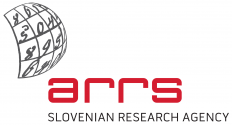Music and politics in the post-Yugoslav space: toward a new paradigm of politics of music in the 21st century
Principal Investigator at ZRC SAZU
Ana Hofman, PhD-
Original Title
Music and politics in the post-Yugoslav space: toward a new paradigm of politics of music in the 21st century
Project Team
Tanja Petrović, PhD, Mojca Kovačič, PhD, Assist. Prof. Martin Pogačar, Rajko Muršič, PhD, Svanibor Pettan, PhD-
Project ID
J6-9365
-
Duration
1 July 2018–30 June 2021 -
Lead Partner
Research Centre of Slovenian Academy of Sciences and Arts, Institute of Cultura…
-
Project Leader
Ana Hofman, PhD
-
Financial Source
Slovenian Research Agency

Partners
University of Ljubljana, Faculty of Arts, Department of Antrhopology, University of Ljubljana, Faculty of Arts, Department of Musicology; Institute …
Project aims to develop a more nuanced approach to the study of power of music and sound in political mobilization, participation and building political communities. In doing so, the project team focuses on the relation between music, sound, emotion, and affect, as a particularly potent conceptual framework for understanding the capacities to act politically in the contemporary times. Theoretically, the project is rooted in the so‐called “affective turn” that emerged in the last twenty years as the important growing field of inquiry in many disciplinary fields including cultural theory, philosophy, political theory, anthropology, and psychology. Empirically, our approach is firmly situated within the ethnographic tradition of the disciplines of ethnomusicology and anthropology, and emphasizes the necessity of interweaving theoretical discourse with ethnographic inquiry. Through this peculiar combination of theoretical and empirical research, project contributes to substantial reconfiguring of ideas about political agency in 21 century.
Our case studies are not limited to one nation‐state (Slovenia) but take a decidedly regional approach by focusing on the area of former Yugoslavia. The data includes examples from various collective music performing and listening, which are currently gaining renewed importance worldwide as a specific transnational phenomenon.
This material is crucial for the three central themes, all related to developing of new notions of political agency: 1) Politics of music beyond identity; 2) Self-organization and radical amateurism; 3) Politics of idealism and utopia.
Team members (including SICRIS links):
RF1: Developing the theoretical and methodological framework
This phase delineates the development of the theoretical and methodological framework as the basis for planned research work. It entails critical reading of existing literature, internal project team discussions and the final development of the framework. The result will be presented, discussed and finalized at the Conceptual Workshop (D2.1). RF1 will run throughout the duration of the project, which will enable incorporation of new findings and modification of the framework (M1-12)
RF2: Data collection and analysis in comparative perspective
This phase entails collecting of existing data on research topics, as well as fieldwork. Complemented by the guidelines of the theoretical and methodological framework, the team design an analytical framework, which includes guidelines on collecting and archiving collected research data (M10-28)
RF3: Sublimation of research data and production of results
Based on RF1 and RF2, RF3 entails transcripts, processing of collected audio-visual data, analysis of performative contexts, and synthesis and presentation of findings (M26-36).
Expected project results:
1. Transnational scholarly network and online platform for scholars working on music and
affect
2. Project website with audio and video data from ethnographic research
3. Annotated bibliography on the topic of music and affect
4. Scientific monograph “Affective Politics of Music”
5. Scientific articles in journals
6. Edited volume/Thematic issue Music and Affective Politics in 21st century
7. International conference on the theme on Music and Affective Politics in 21st century
8. Series of public lectures
9. Panel presentations at various international conferences